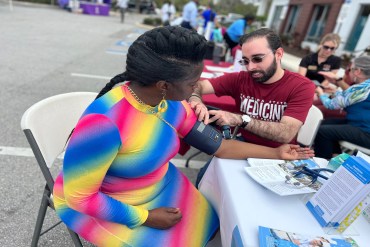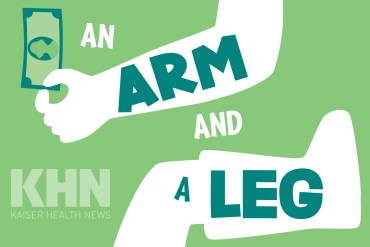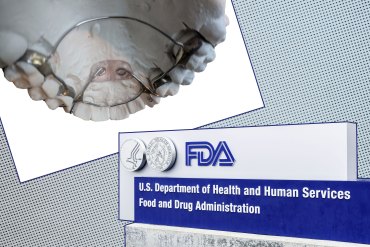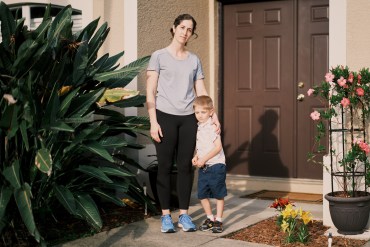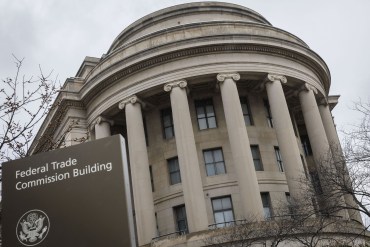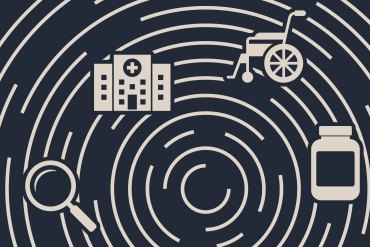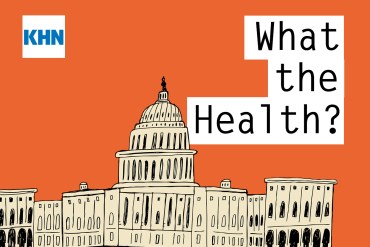High Inflation and Housing Costs Force Many Americans to Delay Needed Care
A recent Gallup Poll suggests that Americans are putting off medical care because of costs. Inflation and rising rents make it harder for people to make ends meet.
The Big Squeeze: More Enrollees and Smaller Networks Plague Some ACA Plans
Despite record enrollment in health insurance plans under the Affordable Care Act, some consumers who bought coverage and agents who helped them do so have had a tough start to the new year: Many say it’s hard to find an in-network doctor or hospital.
An Arm and a Leg: A Doctor’s Love Letter to ‘The People’s Hospital’
Could a charity hospital founded by a crusading Dutch playwright, a group of Quakers, and a judge working undercover become a model for the U.S. health care system? In this episode of the podcast “An Arm and a Leg,” host Dan Weissmann speaks with Dr. Ricardo Nuila to find out.
FDA Evaluates ‘Safety Concerns’ Over Dental Devices Featured in KHN-CBS Investigation
A KHN and CBS News investigation found that a dental appliance called the AGGA has been used by more than 10,000 patients, and multiple lawsuits allege it has caused grievous harm to patients.
In Texas, Medicaid Coverage Ends Soon After Childbirth. Will Lawmakers Allow More Time?
Pregnancy-related Medicaid coverage ends just two months after childbirth in Texas — some advocates and researchers say that cutoff contributes to maternal deaths and illnesses in the state.
States Try to Obscure Execution Details as Drugmakers Hinder Lethal Injection
Pharmaceutical companies have put the brakes on many states’ ability to execute prisoners using lethal injections. Lacking alternatives, states are trying to keep the public from learning details about how they carry out executions.
$50 Billion in Opioid Settlement Cash Is on the Way. We’re Tracking How It’s Spent.
Spending the money effectively and equitably is a tall order for state and local governments, and a lack of transparency in the process is already leading to fears of misuse.
ER’s Error Lands a 4-Year-Old in Collections (For Care He Didn’t Receive)
A Florida woman tried to dispute an emergency room bill, but the hospital and collection agency refused to talk to her — because it was her child’s name on the bill, not hers.
Truly Random Drug Testing: ADHD Patients Face Uneven Urine Screens and, Sometimes, Stigma
Doctors have no national standards on when to order urine tests to check whether adult ADHD patients are properly taking their prescription stimulants. Some patients are subjected to much more frequent testing than others.
Banning Noncompete Contracts for Medical Staff Riles Hospitals
It’s about the money — on both sides — as arguments swirl about patient safety, rising prices, and paying back on-the-job training.
End of Covid Emergency Will Usher in Changes Across the US Health System
The May 11 expiration of the federal government’s pandemic emergency declaration will affect patient care across a broad range of settings, including telemedicine, hospitals, and nursing homes.
A Lot of Thought, Little Action: Proposals About Mental Health Go Unheeded
A recent report detailing problems with Florida’s patchwork mental health system had reached conclusions nearly identical to those of a similar report from more than 20 years ago. The echoes between the findings are unmistakable. And Florida isn’t the only state struggling with the criminalization of mental illness, a lack of coordination between providers, and insufficient access to treatment.
Judge Signals He Could Rule to Halt Sales of Common Abortion Pill
A U.S. District Court case is being widely followed because the judge’s decision could overturn the FDA’s approval of mifepristone two decades ago. With abortion rights polling well even in red states, anti-abortion activists are increasingly turning to the courts to achieve their aims.
Temp Nurses Cost Hospitals Big During Pandemic. Lawmakers Are Now Mulling Limits.
Missouri is considering making it a felony to jack up temporary health care staffing prices during a statewide or national emergency. It’s one of at least 14 states looking to reel in travel nurse costs, after many hospitals struggled to pay for needed staffers earlier in the covid pandemic.
The US Remains a Grim Leader in Preterm Births. Why? And Can We Fix It?
American women are more likely to deliver their babies prematurely than women in most developed countries. It’s a distinction that coincides with high rates of maternal and infant death, billions of dollars in costs, and even lifelong disabilities for the children who survive.
Black Lung Resurgence Drives Push to Protect Coal Miners Against Silica Dust
Since 2005, central Appalachia has recorded a tenfold increase in cases of severe black lung disease among long-term coal miners. Now, federal regulators are expected to propose a new rule to protect against silica dust, which causes the most severe form of black lung, progressive massive fibrosis.
Feds Move to Rein In Prior Authorization, a System That Harms and Frustrates Patients
The federal government wants to change the way health insurers use prior authorization — the requirement that patients get permission before undergoing treatment. Designed to prevent doctors from deploying expensive, ineffectual procedures, prior authorization has become a confusing maze that denies or delays care, burdens physicians with paperwork, and perpetuates racial disparities. New rules may not be enough to solve the problems.
What the Health? From KFF Health News: Biden Budget Touches All the Bases
Very little in the proposed budget released by the Biden administration is likely to become law, particularly with Republicans in charge of the U.S. House. Still, the document is an important statement of the president’s policy priorities, and it’s clear health programs are among those he feels are important. Meanwhile, five women who were denied abortions when their pregnancies threatened their lives are suing Texas. Shefali Luthra of The 19th, Victoria Knight of Axios, and Margot Sanger-Katz of The New York Times join KHN’s Julie Rovner to discuss these issues and more. Also this week, Rovner interviews Harris Meyer, who reported and wrote the two latest KHN-NPR “Bill of the Month” features. Both were about families facing unexpected bills following childbirth.
Medicaid Health Plans Try to Protect Members — And Profits — During Unwinding
States are turning to the big health insurance companies to keep Medicaid enrollees insured once pandemic protections end in April. The insurers’ motive: profits.
Why Does Insulin Cost So Much? Big Pharma Isn’t the Only Player Driving Prices
Big Pharma may be moving on from squeezing diabetes patients on insulin prices, but it’s the arbitrators that jack up prices for those who can least afford them.




